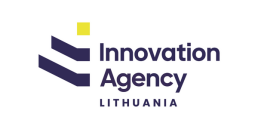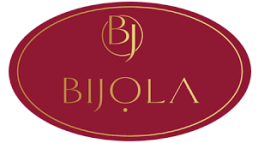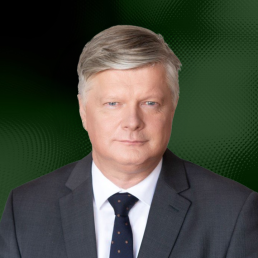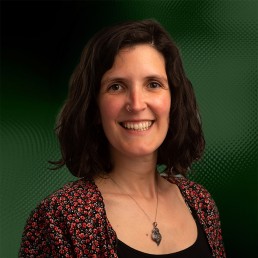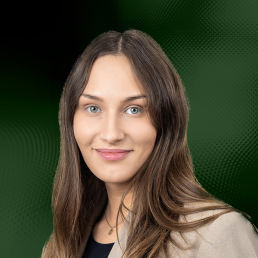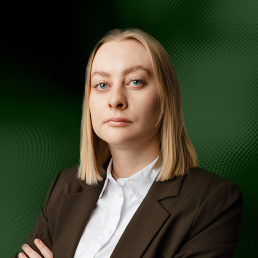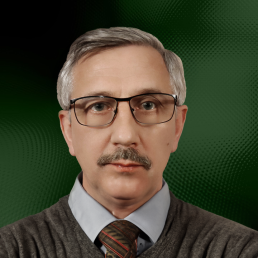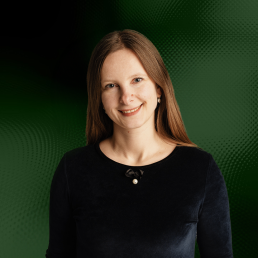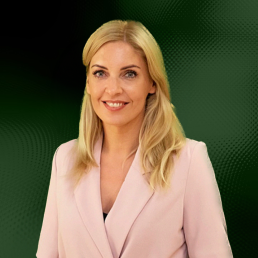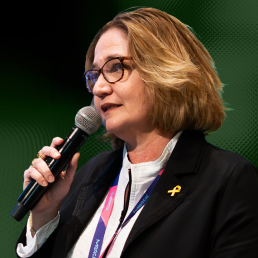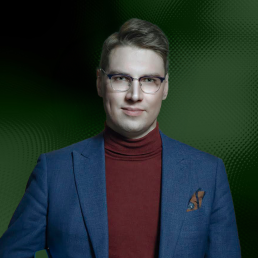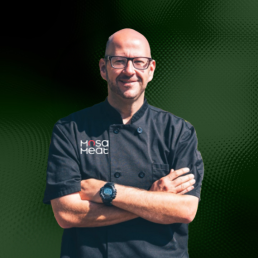
Green Horizons Summit
Aušrinė Armonaitė
Minister of the Economy and Innovation of the Republic of Lithuania
‘The bioeconomy sector now accounts for 7.5% of Lithuania’s total GDP and is one of the areas that can offer technology solutions for transition to a climate-neutral economy. We see potential in the production of plant proteins, which is one of bioeconomy areas and which contributes to sustainable food production as well as adds considerable value to Lithuania’s biotechnology sector’, said Minister of the Economy and Innovation Aušrinė Armonaitė.
Setting the scene
In the heart of Europe’s burgeoning bioeconomy, the “Green Horizons Summit: Fostering Regional Bio-Innovation through Youth, Startups, and Shaping the Bioeconomy Landscape” is a pivotal satellite event of the Bioeconomy Changemakers Festival. Scheduled for 13 March 2024, this summit is set against the backdrop of the European Commission’s dynamic initiative, led by DG Research and Innovation, in collaboration with the Bioeconomy Youth Ambassadors.
The bioeconomy is crucial for Europe’s future. It represents a paradigm shift towards an economy where biological resources are sustainably utilized to produce food, energy, products, and services. As the world fights climate change, resource scarcity, and environmental degradation, the bioeconomy offers a pathway to reconcile economic growth with environmental sustainability. It is a sector ripe with opportunities for innovation, especially in areas like biotechnology, renewable energy, and sustainable agriculture.
The Green Horizons Summit aims to tap into this potential. It seeks to galvanize the enthusiasm and innovative spirit of youth, who are instrumental in driving this shift. By fostering a dialogue between industry leaders, young innovators, startups, and policy makers, the summit aims to catalyze a bioeconomy that is vibrant, inclusive, and sustainable. This aligns with the overarching goal of the Bioeconomy Changemakers Festival: to engage youth in transformative change and contribute to shaping the Bioeconomy Strategy and Action Plan for a sustainable future.
Through this summit, we are not just envisioning a sustainable future; we are actively participating in its creation, highlighting the critical role of the bioeconomy in Europe’s ecological and economic landscape.
Investment in Youth and Startups
Investing in small and medium-sized enterprises (SMEs), especially those driven by youth and innovation, is crucial. Supporting educational programs that impart knowledge about sustainable practices and bio-innovations can ignite change at the grassroots level. The summit will emphasize developing risk analysis frameworks and supporting research in bioeconomy innovation.
Crisis Management and Eco-Sustainability
Developing adaptable policies and contingency plans for potential crises is vital. This, coupled with a shift to renewable energy, aligns with the summit’s focus on sustainable operational models.
Global Bioeconomy Collaboration
The summit will underscore the importance of transparent data sharing and the use of advanced analytics in the bioeconomy sector. This approach is essential for efficient resource allocation and fostering global collaboration in bio-innovation.
Towards a Sustainable Bioeconomy
The end goal is a holistic transformation of the bioeconomy sector, integrating sustainability with economic and environmental goals. This requires a collaborative model that encompasses the entire bioeconomy chain, advocating for a paradigm shift in traditional practices towards a sustainable future. The summit will serve as a catalyst for these integrated efforts, promoting a unified approach to bioeconomy across local, national, and global platforms.
The upcoming Green Horizon Summit is expected to generate several positive outcomes
- Enhanced Collaboration
- Innovation and Research Promotion
- Youth Engagement and Empowerment
- Policy Influence
- Increased Awareness
Overall the event of the Green Horizon Summit is contextualized within several key global and regional developments
- Rising Environmental Challenges
- Technological Advancements
- Youth Engagement
- Economic Shifts
- Policy and Strategy Needs
The main Entrance Hall will hold demonstrations dedicated to deep tech solutions that SMEs and StartUps are developing, so all the start-ups are invited to demonstrate their solutions. The main aim of these demonstrations is to discuss the impact of deep tech and robotics startups in creating innovative and sustainable startup ecosystems in the regions. The technologies can be demonstrated as they are, prototypes or video recordings and afterwards, the work in groups will be carried out to hear the participants’ feedback.
During the demonstrations
- Societal readiness of the product proposals will be assessed;
- Society concerns will be mapped, also considering citizens' rights (legal, ethical, data protection etc).
- The Companies will have honest feedback from potential customers and partners on the improvement and technology readiness
- Networking - Matchmaking and investor meet possibilities
- Readiness towards technology adaption;
- Relevant situations and roles and application scenarios will be explored.
In addition to many high-level sessions dedicated to discussing the European Start-up ecosystem and opportunities – Open calls and Funding opportunities for Startups will be presented during the event. The funding opportunities will deliver a strong combination of support instruments and tools for scaling up innovation, matchmaking, and demonstrating at large scale innovative market-oriented applications developed by outstanding SMEs that respond to the challenge of a more digitised and greener European Industry. Open calls will fund Startu-ups in all growth stages (early-stage, venture-funded (growth) stage and late stage) and the most market-oriented, scalable and high-impact projects throughout its innovation cycle, all with the goal of promoting their growth and development. The acceleration programs developed in the open-calls uniquely blend business services, access to corporate testbeds, the network and ecosystem building.

Kristina Simonaitytė
Kristina Šermukšnytė-Alešiūnienė
Ugnė Dirdaitė
Margarida Costa
Ph.D Vaida Sirgedaitė-Šėžienė
Nelo Emerencia
Rasa Pakeltienė
Lina Žukauskienė
Emma Gorgori
Karolina Trakšelytė-Rupšienė
Agenda
Hall A
Hall B
09:00 - 09:30 Opening remarks/Opening presentation
Virginijus Sinkevičius – European Commissioner for the Environment, Oceans and Fisheries
Kęstutis Navickas – Minister of Agriculture of the Republic of Lithuania
Simonas Gentvilas – Minister of Environment of the Republic of Lithuania
Ieva Valeškaitė – Vice-Minister of Economy and Innovation of the Republic of Lithuania
Kristina Šermukšnytė – Alešiūnienė – CEO of AgriFood Lithuania DIH, European Cluster Manager of the Year 2022
09:30 - 10:25 High level opening panel – "Charting the Future: Pioneering Sustainable Bioeconomy in Europe"
Objectives:
- To set the tone for the summit by highlighting the critical role of bioeconomy in Europe’s sustainable future.
- To foster dialogue among key stakeholders about the challenges and opportunities in the bioeconomy sector.
- To discuss strategic approaches for integrating youth and startups in advancing the bioeconomy.
Discussion Topics:
- Bioeconomy’s Role in Europe’s Ecological and Economic Landscape: Exploring its impact on sustainable development and climate action.
- Innovative Approaches and Technological Advancements in Bioeconomy: Showcasing cutting-edge innovations and their potential for transformation.
- Youth, Startup and Regions Engagement: Strategies to involve and empower the younger generation, innovators and regions in the bioeconomy movement.
- Policy Framework and International Collaboration: Examining the current policy landscape and the importance of collaborative efforts for a unified bioeconomy strategy.
Richard Zaltzman – EIT Food CEO
Kristina Šermukšnytė – Alešiūnienė – CEO of AgriFood Lithuania DIH, European Cluster Manager of the Year 2022
Vidmantas Janulevičius – President of the Lithuanian Confederation of Industrialists
Argo Peepson – Estonian Ministry of Regional Affairs and Agriculture
Kristina Simonaitytė – Advisor to the Minister of Agriculture at Ministry of Agriculture of the Republic of Lithuania
Marius Vaščega – Head of the European Commission’s Representation in Lithuania
Moderator:
Živilė Kropaitė-Basiulė
10:25 - 10:30 Innovation Agency Lithuania signing the Memorandum
10:30 - 11:20 High level remarks - “Cultivating Change: Harnessing the Power of Alternative Proteins for a Sustainable and Thriving Regional Bioeconomy”
Introductory insight: Future perspectives in the cultured meat sector: the experience of Aleph Farms
Neta Lavon Ph.D – Co-Founder and CTO Aleph Farm
Objectives:
- Insightful Dialogue: Foster a thoughtful and comprehensive dialogue among industry leaders, policymakers, young innovators, and startups on the critical role of alternative proteins in the bioeconomy, focusing on sustainable agriculture and regional development.
- Strategic Collaboration: Highlight and encourage the formation of strategic partnerships between various stakeholders, including educational institutions, research bodies, industry experts, and policymakers to drive the bioeconomy forward.
- Knowledge Exchange: Provide a platform for sharing cutting-edge research, practical insights, and successful case studies related to the development and implementation of alternative protein sources.
- Youth Empowerment: Emphasize the significance of engaging and empowering youth, recognizing them as key drivers for sustainable innovation in the bioeconomy sector.
- Policy Influence: Discuss and shape future strategies and policies that support the growth and sustainability of the alternative proteins sector within the broader bioeconomy, aligning with regional and global sustainability goals.
Discussion Topics:
- Innovation in Alternative Proteins: Exploring breakthroughs, current research, and the future potential of alternative proteins in transforming the agri-food sector.
- Sustainability and Ethical Considerations: Addressing the environmental impact, resource efficiency, and ethical considerations in the production and consumption of alternative proteins.
- Economic Viability and Market Dynamics: Analyzing the market trends, consumer behavior, and economic challenges and opportunities in scaling alternative proteins.
- Youth and Startup Engagement: Discussing the role of youth-led initiatives and startups in pioneering sustainable solutions and driving the adoption of alternative proteins.
- Policy Frameworks and Support Systems: Examining the existing policies, regulatory environments, and support systems that impact the alternative proteins sector, and discussing the need for adaptive and supportive policy frameworks.
- Global Collaboration for a Resilient Bioeconomy: Highlighting the importance of international cooperation, knowledge sharing, and collective action in fostering a robust and resilient bioeconomy that integrates alternative proteins.
- Future perspectives in the cultured meat sector: the experience of Aleph Farms
Ieva Valeškaitė – Vice-Minister of Economy and Innovation of the Republic of Lithuania
Robert E. Jones – Head of Public Affairs for Mosa Meat
Andy Zynga – EIT Food Ambassador
Vytautas Abukauskas – Vice-Minister of Agriculture of the Republic of Lithuania
Seth Roberts – The Good Food Institute Europe Policy Manager
Moderator:
Živilė Kropaitė-Basiulė
11:20 - 11:40 Coffee break
11:40 - 13:00 Panel 1A – "Youth Empowerment in Bioeconomy: Shaping Tomorrow's Leaders"
This panel is dedicated to exploring the vital role of youth in the bioeconomy sector. It will address the unique challenges and opportunities young people face and how they can be integral to driving the bioeconomy forward. The discussion will focus on bridging the gap between young talent and the bioeconomy industry, fostering an environment where youth can contribute innovatively and effectively.
Objectives:
- To explore innovative approaches for integrating youth into the bioeconomy, ensuring their ideas and energy are harnessed.
- To create a platform for youth to voice their perspectives and solutions for a sustainable bioeconomy.
- To identify barriers to youth involvement in the bioeconomy and strategies to overcome them.
Discussion Topics:
- Educational Pathways: Delving into how educational institutions can better prepare students for careers in the bioeconomy, including curriculum development and practical training.
- Youth Entrepreneurship: Exploring mechanisms to support young entrepreneurs in the bioeconomy sector, including funding, mentorship, and networking opportunities.
- Career Development and Opportunities: Discussing the current and future landscape of career opportunities in the bioeconomy for young professionals.
- Youth Advocacy and Leadership: How young leaders can advocate for sustainable practices and policies in the bioeconomy.
- Global and Regional Youth Initiatives: Examining successful youth-led initiatives and programs in different regions, and how these can be replicated or scaled up.
- Technology and Innovation: Encouraging youth participation in technological innovation and digital solutions within the bioeconomy.
Introductory insight:
Augustas Alešiūnas – AgTech Investor, EIT Food Core Partner, Startup Ecosystem Expert
Panel discussion:
Ugnė Dirdaitė – EU Bioeconomy Youth Ambassador, Science and Innovation Advisor at Ministry of Agriculture of the Republic of Lithuania
Teresė Škutaitė – Head of GreenTech Hub at Innovation Agency Lithuania
Andželika Rusteikienė – CEO of Lithuanian Junior Achievement
Tomas Byčkovas – CEO of Biohifas
prof. dr. Astrida Miceikienė – Chancellor of Agriculture Academy at Vytautas Magnus University
Nelo Emerencia – Director Human Capital & Stakeholder Relations at Bio based Industries Consortium
Moderator:
Živilė Kropaitė-Basiulė
13:00 - 14:15 Lunch break
14:15 - 15:30 Panel 2A – Cross-Sector Collaboration for Bioeconomy Growth
This panel aims to delve into the dynamics of cross-sector collaboration as a key driver for the growth and success of the bioeconomy. It will explore how different industries, government entities, and academia can work together to create a more sustainable and efficient bioeconomy.
Objectives:
- To showcase successful models of cross-sector partnerships and their impact on bioeconomy.
- To identify and address challenges and barriers in cross-sector collaborations.
- To discuss strategies for fostering effective and long-lasting partnerships across various sectors.
Discussion Topics:
- Case Studies of Successful Collaborations: Analyzing examples where cross-sector partnerships have led to significant advancements in the bioeconomy.
- Role of Government in Facilitating Partnerships: Examining how policies and government initiatives can support and encourage cross-sector collaborations.
- Public-Private Partnerships (PPPs): Exploring the structure, benefits, and challenges of PPPs in the bioeconomy sector.
- Collaboration between Academia and Industry: Discussing the importance of research and development partnerships between universities and bioeconomy businesses.
- Global and Regional Collaboration Opportunities: Identifying opportunities for international and regional collaborations to advance the bioeconomy.
Introductory insight:
Marja-Liisa Meurice – Director of EIT Food CLC North-East
Panel discussion:
Aurelija Povilaikė – Head of NCP Unit, NCP Coordinator
Margarida Costa – Research Leader at the Microalgae Section at the Norwegian Institute for Water Research (NIVA), Coordinator of LOCALITY
Greta Zajančauskaitė – Life Sciences Investment Advisor at Invest Lithuania
Mindaugas Maciulevičius – Director of the Lithuanian Farm Quality Agricultural Cooperative
Grigoris Chatzikostas – Vice President of Business Development at FoodScale Hub and General Partner at Loggerhead Ventures
Emma Gorgori – Head of the European projects Unit of the Tarragona Provincial Council, SOULFOOD project coordinator
Moderator:
Kristina Šermukšnytė-Alešiūnienė – CEO of AgriFood Lithuania DIH, European Cluster Manager of the Year 2022
15:30 - 16:45 Panel discussion 3A Green Tech and Innovation: Driving Bioeconomy Forward
This panel focuses on the pivotal role of green technology and innovation in propelling the bioeconomy sector. It aims to highlight how technological advancements are revolutionizing the ways we approach bio-based production, energy, and agriculture.
Objectives:
- To showcase the latest developments in biotechnologies and their applications in bioeconomy.
- To discuss the integration of renewable energy sources in bio-based industries.
- To explore innovative sustainable agricultural practices that contribute to bioeconomy growth.
Discussion Topics:
- Breakthroughs in Biotechnology: Examining new biotech innovations and how they are shaping the future of bioeconomy.
- Renewable Energy Integration: Discussing the role of renewable energy sources in creating a more sustainable bioeconomy.
- Sustainable Agriculture Technologies: Exploring advances in agricultural technology that align with bioeconomy principles.
- Innovation Ecosystems: Understanding the ecosystem required to foster innovation in the bioeconomy sector.
- Challenges and Opportunities in Green Tech: Addressing the challenges faced in adopting new technologies and the opportunities they present for the bioeconomy.
Introductory insight:
Alvija Šaleševičienė – Director of KTU Food Institute
Panel discussion:
Carsten Hjort – Senior Director at Novozymes
Jonas Ignatavičius – Head of Innovation at Nando
Alvija Šaleševičienė – Director of KTU Food Institute
Raimundas Juknevičius – Chairman at Lithuanian Farmers’ Union
Nerijus Baliūnas – CFO & Co-Founder of Leafood
Augustas Alešiūnas – AgTech Investor, EIT Food Core Partner, Startup Ecosystem Expert
Moderator:
Živilė Kropaitė-Basiulė
16:45 - 17:00 1st. day Concluding session/Startup Awards
17:00 - 18:30 Networking over a glass of wine
11:45-13:00 Via the HORIZON EUROPE towards the Green Deal goals and the boosting of bioeconomy
Science, business and policy representatives will discuss how the program HORIZON EUROPE contributes to the development of bioeconomy, which is one of the most important priorities in the transition to a climate-neutral and circular economy and in achieving other goals of the Green Deal. This panel will focus on how the implementation of very different projects could achieve the same impact and contribute to the potential growth of bioeconomy in Lithuania and the European Union.
Objectives:
- To share good practices and increase involvement in HORIZON EUROPE projects and promote the development of bioeconomy.
- To show the wide range of possibilities of HORIZON EUROPE for the bioeconomy sector and its participants.
- To analyze the needs of the applicants of the Lithuanian bioeconomy sector, get them more actively involved in the international projects and create new opportunities.
Discussion Topics:
- Innovations based on monitoring and data analysis. They are necessary for the transition to climate-sustainable farming, biological resource management, optimization of biobased materials production, anticipation of potential problems, and ensuring a high environmental performance.
- Bioeconomy knowledge that enables breakthrough and engagement in decision-making. A sufficient amount of bioeconomy knowledge and innovations have been created in the European Union, but it is extremely important to collect and use them effectively. Knowledge platforms, hubs, and thematic networks can set in motion the levers for knowledge sharing and dialogue.
- Research and innovation in the bioeconomy sector. What areas of scientific research are currently the most relevant in the bioeconomy sector in Lithuania and Europe? In which of them do Lithuanian researchers have the most potential?
- Strengthening of science and business partnerships and cross-institutional cooperation in projects. The HORIZON EUROPE projects use a holistic approach and encourage the collaboration of all stakeholders, including society. How to bring together Lithuanian competencies to win international projects and boost the country’s leadership?
Panel discussion:
Rasa Pakeltienė – Associated Professor and Researcher at Vytautas Magnus University, Secretary General at the Association for European Life Science Universities
Donatas Staniulis – Executive Director of LithuaniaBIO
Milita Žygytė – Scientific Project Manager at Sirputis
Dr. Vaida Sirgedaitė-Šėžienė – Head of Laboratory of Forest Plant Biotechnology at Lithuanian Research Centre for Agriculture and Forestry
Lina Žukauskienė – Head of Innovation Support Service at PI Lithuanian Agricultural Advisory Service
Moderator:
Aurelija Povilaikė
13:00-14:15 Lunch Break
14:15-16:30 AgriFoodTech & Bioeconomy Startup Pitch Battle 2024 powered by Innovation Agency Lithuania in cooperation with Baltic Sandbox Ventures
We are inviting AgriFoodTech & Bioeconomy Start-ups to participate in Start-up EVENT where your ideas and solutions will meet a wide audience. 15 of the most promising startups will be selected and given an opportunity to showcase themselves, to meet and connect investors and local industry leaders. Don‘t miss this chance and hurry up to register!
Main prizes:
- Fast Track Ticket to Startup Fair 2024 Pitch Session
- Fast track to unique Life Sciences oriented incubation program, powered by Baltic Sandbox Ventures, with a possible 15k Eur grant*.
*Eligibility criteria applies. More on the incubation program can be found here: https://balticsandbox.ventures/incubation-program.html
Additional prizes:
- First 3 winners will be given personal consultations of Innovation Agency Lithuania on the preparation of financial applications.
Moderator: Baltic Sandbox Ventures
Startup Pitch Battle Jury:
Donata Pečiukėnienė – Research council of Lithuania
Paulius Guzevičius – Head of Innnovation at Vikonda Group
Dominykas Milašius – Ventures partner Baltic Sandbox Ventures & co-founder Delta Bioscience
Neringa Romanovskaja – NR- Sales process optimization expert, lecturer, consultant
Daiva Rakauskaitė – CEO & Fund manager, Business angels fund I-II
Karolina Trakšelytė-Rupšienė – Smart Specialization Coordinator | BioTech Lab | Breakthrough areas department
Moderator:
Andrius Milinavičius – General partner Baltic Sandbox Ventures








